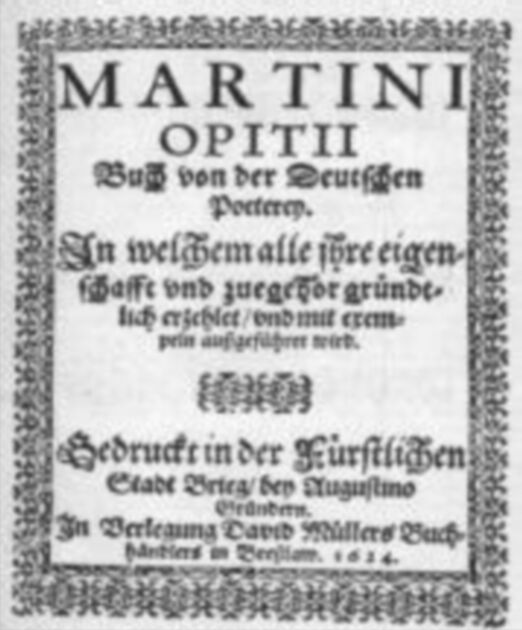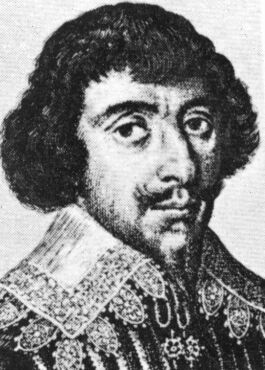What makes baroque poetry so different from the one we find in other centuries?
In contrast to poems which are based on what the poet experienced himself, baroque poetry is always theoretical. In a very special rhetoric – which readers do not always like because it sounds so artificial – we find variations of themes that have existed in literature for centuries.
Formal aspects are highly important. Nature, i.e. people, objects, situations, are used as a starting-point and then transformed into abstract concepts. Why is this so? – The baroque reader thinks that everything on earth is only transient and therefore unimportant, "vain". Ideas count, the praise of God counts - real life is of interest in so far only as it serves to show basic concepts. If a lady´s beauty is portrayed then only to show the transitoriness of it.
Development of German poetry


Martin Opitz
Up to the 17th century, German poetry had been very much influenced by contemporary Latin as well as Italian, French and Dutch poetry. Ever since Martin Opitz (1597-1639) wrote his work of poetical theory, "Buch von der deutschen Poeterey" (1624), these things were beginning to change. Due to Opitz, the Italian poet Petrarch became well-known in Germany and influenced German poets to imitate and develop his ideas and thus find their own voice.
Linguistic societies were formed which tried to find out in how far
the German language was apt to express what people wanted to express. For
the first time, the educated German speakers became proud of their own
national tongue and wanted to use it in literature. The German language
was greatly enriched: A large number of neologisms was introduced at that
time. Opitz and the baroque century mark the beginning of an independent
German language and culture within the European context.
Baroque love poetry
Generally speaking, baroque love poetry is something really special.
In a refined rhetoric, we find a list of attributes which e.g. praise a
lady`s beauty. The strangest metaphors are used, witty antithetical statements
and drastic exaggerations serve to point out what the beloved really is
like. Towards the end of the poem, it is one single idea which is pointed
out as can be seen in our interpretation of Sibylla Schwarz´ sonnet
"Is love a fire?".
Sibylla Schwarz, by the way, was a revolutionary poetess: In her sonnet, she makes use of all the contemporary rhetoric only to make fun of it in the end.